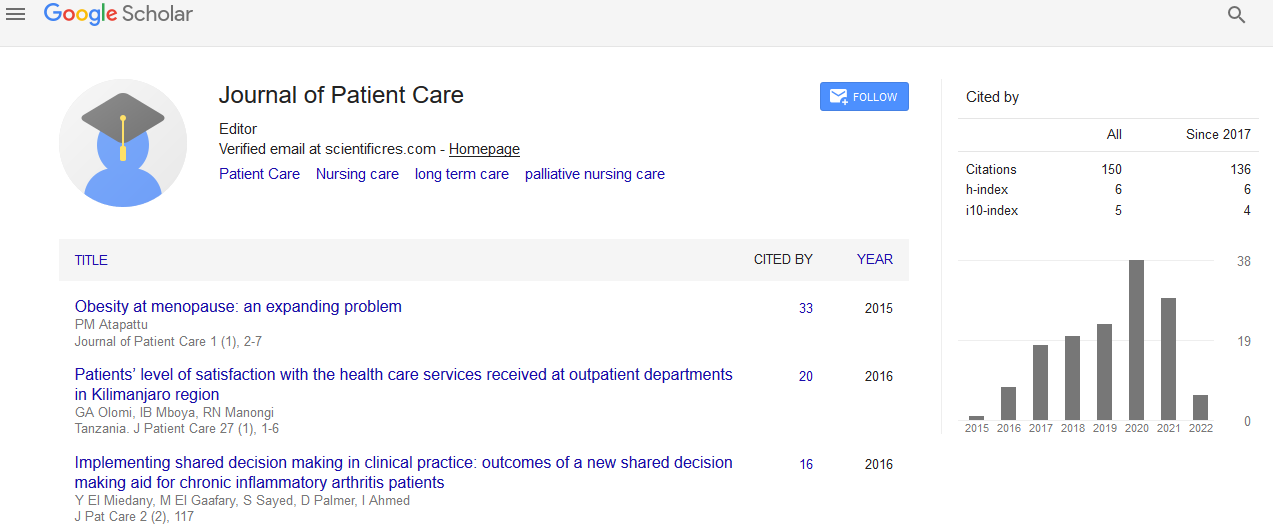Indexed In
- RefSeek
- Hamdard University
- EBSCO A-Z
- Publons
- Geneva Foundation for Medical Education and Research
- Euro Pub
- Google Scholar
Useful Links
Share This Page
Journal Flyer

Open Access Journals
- Agri and Aquaculture
- Biochemistry
- Bioinformatics & Systems Biology
- Business & Management
- Chemistry
- Clinical Sciences
- Engineering
- Food & Nutrition
- General Science
- Genetics & Molecular Biology
- Immunology & Microbiology
- Medical Sciences
- Neuroscience & Psychology
- Nursing & Health Care
- Pharmaceutical Sciences
U safer AE trial: Using simulation for audit & feedback review of adverse events
World Congress on Patient Safety & Quality Healthcare
September 07-09, 2017 London, UK
Anna-Theresa Lobos, Melissa Langevin M D, Natalie Ward, Christa Ramsay, Melanie Hogue R N, Ken Farion and David Creery
Children�??s Hospital of Eastern Ontario, Ontario
Posters & Accepted Abstracts: J Pat Care
Abstract:
Background: Root cause analysis (RCA) has been used in healthcare to learn from adverse events but has many limitations. Simulation can amplify real events with guided experiences in an interactive manner. The goal of this study is to investigate the benefit of a simulation-based RCA method of analyzing pediatric adverse events in uncovering root causes and latent safety threats. Methods: Ethics approval was obtained. Adverse events were identified through the hospital�??s Safety Reporting System. Patient chart and event review data was combined and fictionalized scenarios were created. Two scenarios were facilitated and repeated with different, voluntary clinicians to replicate the outcome of the event. Debriefings were conducted following simulations with the data analyzed using a content analysis approach to compile a list of root causes and recommendations for improvement. This list was compared to the recommendations made during the traditional RCA for each scenario. Results: We were able to replicate the errors in 50% (3/6) of scenario A (drug and dose error, in-patient ward) and 60% (3/5) of scenario B (critical care ward, infusion dosing error). In the debriefings, healthcare providers made suggestions regarding changes they felt could prevent errors in the future such as drug labelling, alert signs and changes to existing protocols. The debriefings revealed unique and different recommendations than the traditional RCA. Discussion: While the original adverse event could not consistently be reproduced in the simulations, the adverse event simulation still identified more errors and ideas for improvement than the traditional RCA. Even if the error was not reproduced, the simulations and debriefings provided a better understanding of why decisions were made and allowed for immediate discussion regarding real changes needed for safe patient care. The results of this study suggest that simulation improves the RCA process by increasing the discovery of root causes.

